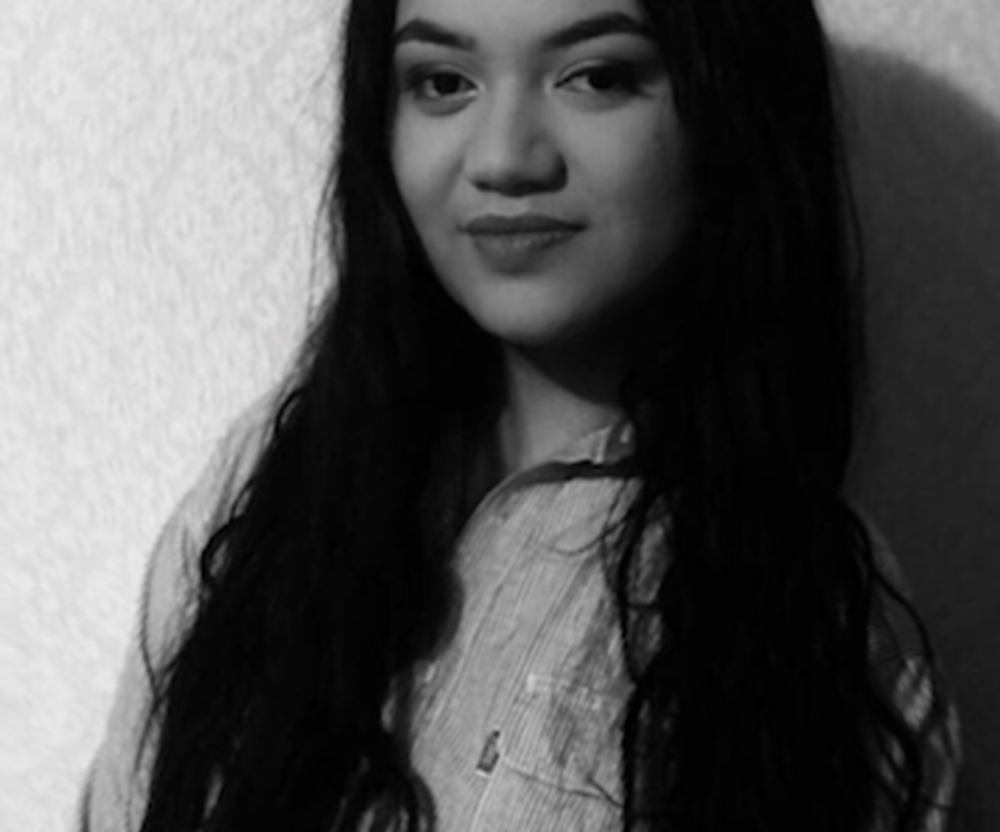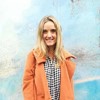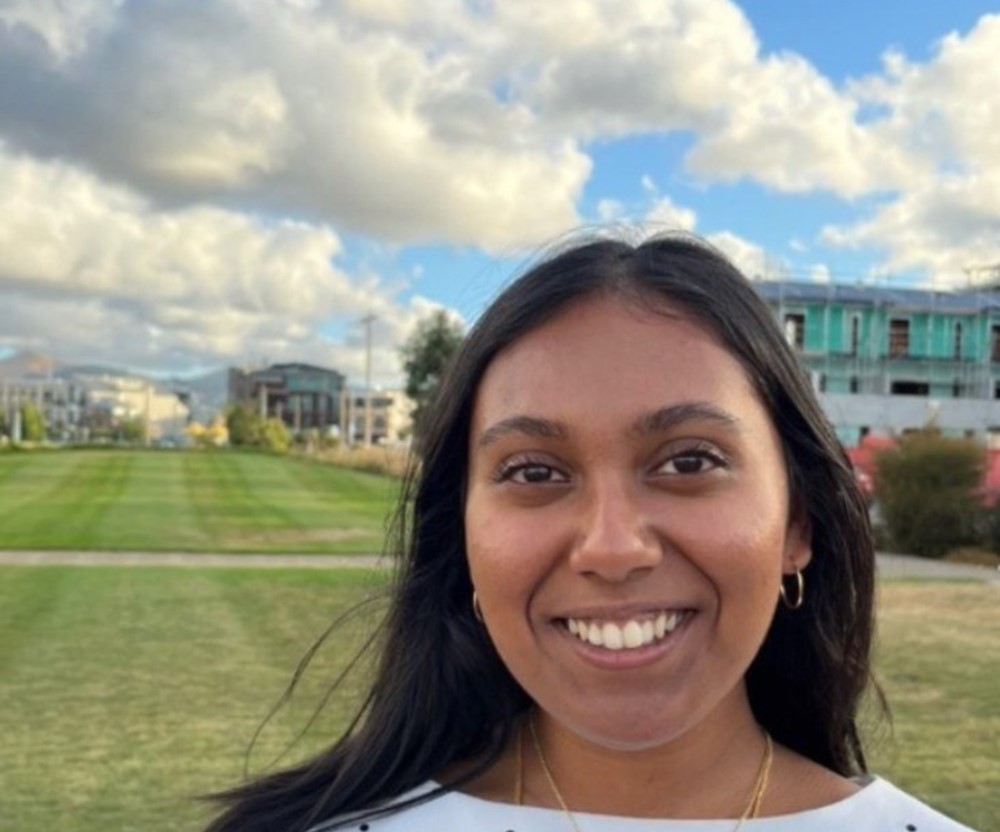
#WAHINEWEDNESDAY: Irihapeti Edwards
A Force to be Reckoned with in the Financial World and Beyond
Categories
- Community
- Hamilton
Irihapeti is from Whangarei where her favourite go-to place is a close tie between Tutukaka Coast and Ocean Beach. She believes, like many of us, that the ocean cures all! A quote she much admires is by Seneca, who wrote: "Ignis aurum probat, miseria fortes viros – Fire is the test of gold; adversity, of strong men.”
At age 18 as a new employee of Deloitte, Iri became one of the youngest ‘Big Four’ employees in the world, and one of the youngest in New Zealand history. Now, at age 21, Iri is a Deloitte New Zealand Consultant and a Prime Minister's Scholar; she was also recently recognized as the New Zealand Youth Leadership Award recipient for 2019, an Asia New Zealand Foundation "25 under 25 to Watch", one of the YWCA New Zealand Y25 Young Women for 2020 and the New Zealand Matariki Awards Young Achiever for 2020.
Some of Iri’s key interests include education, climate action and sustainability, international relations, globalization, smart cities, urban development, AI, public & foreign policy, cultural conservation and the role of global citizenship and youth participation in the modern world.
One of Iri’s primary missions in life is to inspire and encourage the representation of women and cultural participation in the workplace.
We were so lucky to have Iri make time and space to share a little more about herself and her hopes and aspirations!
What are three words you would use to describe yourself?
Erudite, enterprising and ambitious.
(*For our readers, we looked up the meaning of erudite, and it can describe a highly educated person who possesses a wide knowledge of the world and thinks critically and logically).
Who is your most played artist on your Spotify?
This is a super hard question! On Spotify, it’s between Kanye West, Frank Ocean, PARTYNEXTDOOR, Drake or The Weeknd plus the likes of Ozuna, Bad Bunny, J Balvin, Daddy Yankee and Nicky Jam. Also, Sam Smith and Matt Corby for sad girl hours, you know.
Are you a ‘bookworm’ or ‘movie-watcher’?
Books! I’m a huge bookworm. Growing up, I was fortunate that my great-grandmother, who raised me, had an appreciation for books, due in part to her own mother, who was always wonderfully articulate. I fell in love with the way that words can transport you to another realm, and I understood the importance of education as a ‘door-opener’ from a young age. Some of my best recommendations include: On Earth We’re Briefly Gorgeous by Ocean Vuong, Outliers by Malcolm Gladwell, 100 Years of Solitude by Gabriel Garcia Marquez, The Song of Achilles by Madeline Miller, The Celestine Prophecy by James Redfield and Normal People by Sally Rooney. They’re all so good!
The most influential books for me though are probably Ka Whawhai Tonu Matou by Sir Ranginui Walker, Think and Grow Rich by Napoleon Hill and Manufacturing Consent by Noam Chomsky. Ka Whawhai Tonu Matou, in particular, was instrumental in helping me find my identity and reconnect proudly with my culture, so I’ll always be grateful for it. All three of these books taught me to think critically, ask questions, and to always dig a little deeper.
Could you share with us some key hurdles that you’ve had to face and have overcome?
I grew up in a rough, poorer neighbourhood that is generally never represented positively in the media. It’s a shame, in a way, because the ‘hood’ essentially helped me become the person I am today. I’m a child of the welfare system, and I grew up in a place where you can hear the loud symphony of alcohol bottles smashing, as they’re collected by the rubbish trucks every Friday morning. A lot of kids in my neighbourhood are brought up around domestic violence, gang activity, alcohol and drugs. I still remember watching the police intervene in alcohol-instigated fights every single weekend right outside my house – kids crying, adults screaming, and fighting.
At the time, I don’t think I thought much of it. I suppose I thought it was normal. I was fortunate that my great-grandmother never exposed me to those harsh realities in my home, although I did encounter many toxic situations practically every day. But as I grew older, I started to see how wealth disparities breathe life to poverty, crime, addiction, illness etc. It hurts to reflect on these things, and it’s been a huge source of motivation to get out there and build platforms that help bridge the gap of these disparities. I want more children to have access to education and opportunity – these are the things that radically changed the trajectory of my life.
I also reflect on how hard high school was and the unique challenges that were presented there. My great-grandmother, being decades and decades older than me, never really understood the school system at all, and as it was just us growing up, I often had to resort to finding out how to do things, how to achieve things, in my own way. I never got help with homework or school-related things, and I had to battle a lot of personal things in private. The reality is that the majority of the time, my mental health never got a break. Yet each of these experiences, in their own way, have allowed me to become more resilient. Now I like to think of myself as a stronger, more enduring person. I can be grateful for that.
When you got a job at Deloitte at age 18, you became one of the youngest people to be employed by one of the ‘Big Four’ professional services firms, which is a great achievement. What are some tips or words of wisdom you’ve learnt through experiences like this?
I’ll always be so grateful for my time at Deloitte New Zealand – for my manager, for the partners, for everyone involved that decided to take a chance on me. When I was first employed, I was 18 and suffering from a bad case of impostor syndrome, which I think is common among young ambitious women. I remember talking to myself in the mirror ten minutes before my interview, trying to give myself what felt like the most futile pep-talk of the century. What I soon realized was that people like you best when you are being yourself. Whether it be in an interview, or chatting with potential business partners, people crave real human connection and real human conversation. When I think back to my Deloitte interview, and any interview where I was a successful candidate, I can remember laughing. I can remember smiling genuinely. I can remember being honest, even if it made me feel vulnerable. And I think I was successful because people weren’t connecting with a cyborg with generic ‘perfect’ answers – they were connecting with somebody they could relate to on some level. Don’t doubt yourself! The only limitations you truly have in life are the ones you set yourself.
I also want to make a note on using rejection, failure and loss as a springboard. It sucks in the moment, but every single successful person I’ve ever met will agree that these situations create resilience, hardiness and determination that you will need to succeed, especially in competitive or high-pressure industries. Every single successful person has had their fair share of failure and rejection and used it for something greater. When you get your moment of success, enjoy it, celebrate it and remember, you are capable of achieving incredible things.
Financial literacy is something you are passionate about – can you share with us how you have found it valuable in your life and why more people should seek out this education?
Financial literacy is so important. It is the commercial language that functions as a means of survival, and it should be a non-negotiable skill-set. If the monetary system is the universal system that all humans are forced to adopt and use for our whole lives, then it makes sense that we should receive the training it takes to become fully literate in that sphere. We don’t go to school to be half-literate, or ‘sorta’ literate, in our respective languages. So why is it acceptable that we enter the workforce ‘sorta’ financially literate, with a ‘kind of’ understanding of things like taxes, loans, credit, interest etc. I’ve witnessed the role that unequal power distribution plays in these types of situations – where one party is grossly benefitting, sometimes there is another party that is being exploited – in this case, people that may not have the skills or financial literacy to make fully informed financial decisions. It is possible, then, that people are engaging with financial institutions from an unfair vantage point, and aren’t always making decisions in their best financial interests. It’s usually our most vulnerable, but it can also be anyone from any background that hasn’t had much experience or insight in the financial sphere before. This is why I became very passionate about financial literacy as a means of revolution.
You are also an advocate of human and indigenous rights. What have you achieved within this sphere to date, and what do you hope to achieve or see in future?
Being indigenous feels like a form of resistance. What I mean by that is that, despite hundreds of years of attempts to undermine indigenous sovereignty, language, culture and rights all around the world, we exist anyway. And we make no apology for it.
Being an advocate for indigenous and human rights comes from a deeply personal place. I always heard racial slurs and stereotypes growing up, festering in a breeding ground of normalization, and it hurt. This pain worsened as I grew older, as I grew privy to the abhorrent acts committed to indigenous people everywhere. During high school, I was on a panel of young people that had the unique responsibility of reporting to the Canadian government on “the rights of the indigenous child.” Facilitated through UN Canada, I won’t forget going above and beyond to make sure that all the storyboards and paragraphs sent a clear message: Please do not leave any indigenous child behind. Please don’t leave any child behind.
I’ve remained passionate about indigenous and human rights for years now, and that passion grows stronger and stronger each day. I would encourage you to facilitate those conversations. Read those books. Reject those racist jokes and slurs. Ask those questions. Place pressure on lawmakers. Every time you do this, an indigenous ancestor that never got the chance to bring their dreams to fruition sings at the possibility of a new, fairer, and kinder world.
The fact of the matter is that genocide, assimilation, higher rates of rape, suicide, homicide, poverty impacting indigenous people are all interconnected to the insidious ideal that we are ‘other’ to one another - that we have no responsibility for our neighbor. If our lives mean anything, we have to stand up for those that are tired of standing up for themselves alone. That is where I source a lot of my “why” from.
What is something that you are most proud of to date, in terms of achievement, be it something you’ve achieved for yourself or for others?
I think being proud of yourself can be a radical act in a society that often capitalizes on women (and men) downplaying themselves. There’s this weird expectation in New Zealand that if you’ve done something, you should make yourself small and never attract too much attention. I believe we need to learn to celebrate our achievements! Don’t ever degrade yourself or underestimate what you can achieve. Some of the proudest moments for me recently include being able to enrol my little sister into her dream private school and taking responsibility for her. Intergenerational wealth is the end goal for me, so being able to connect my loved ones to opportunity and education means everything. Most of all, I think I’m proud to be a product of the unlikely. I was born to a fifteen-year-old mother, I grew up poor and I’ve been through some rough times, but I succeeded anyway. I want everyone who didn’t have the best circumstances in life to know that they can still succeed.
Has anyone guided or supported you so far? Can you share who and how they helped you?
None of us ever really stand on the stage alone. In the book Outliers, Malcom Gladwell makes a fair point that society often likes to place people on the podium for seemingly achieving things all by themselves, but the truth is that we all have key people who have impacted us in some way to get to where we are today. Whether it be the librarians that always recommended the best books, the teachers who went out of their way for their students, the characters in my stories that were friends to my five-year-old self that often felt like she never had any, or even the people that were unkind throughout my life. I’m grateful for it all.
And to all the brown girls, striving for greatness.
Thank you for it all.
Here are some more Stories for you to read.



